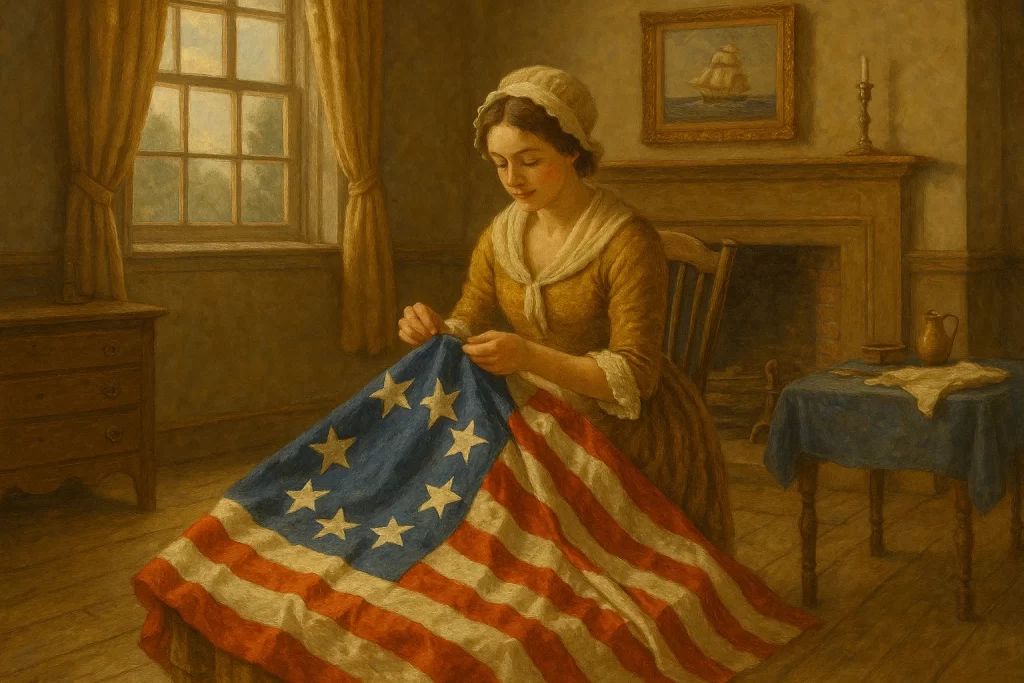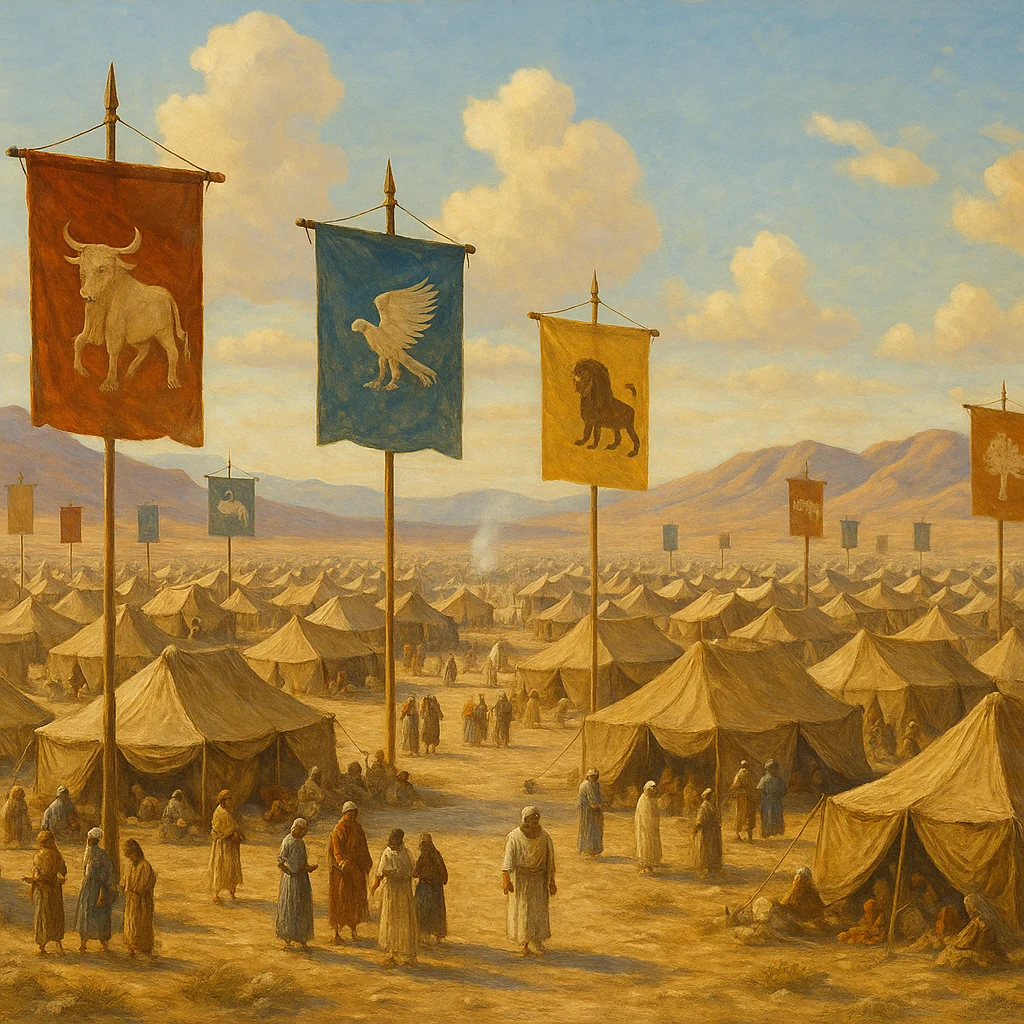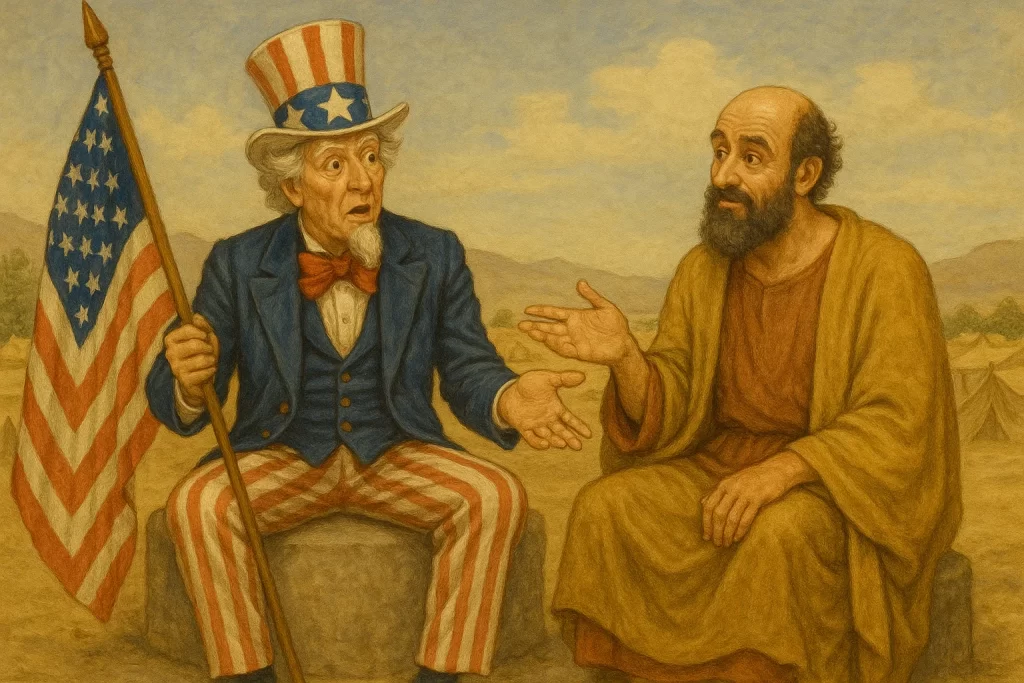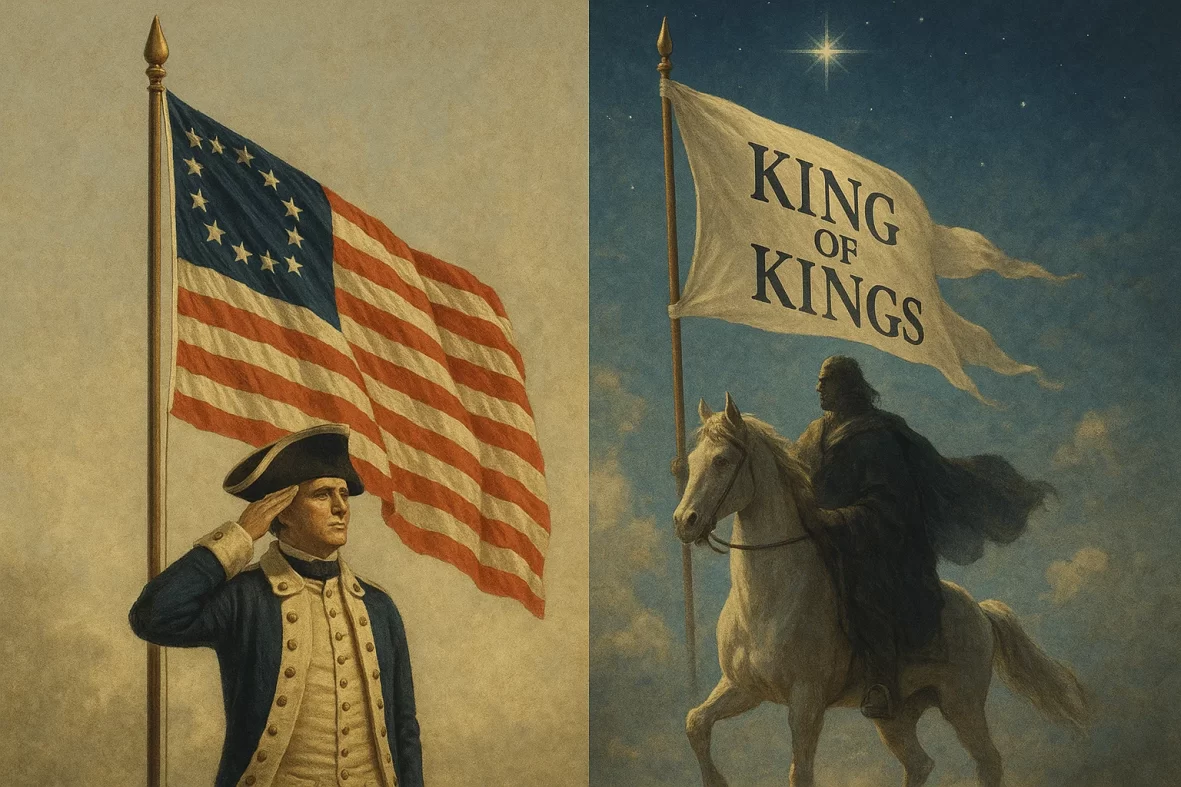Why Flag Day and the Army’s 250th Birthday Still Matter—for Christians Who Pledge Allegiance to a Higher King
A Tale of Two Birthdays
On June 14, 1775, the Continental Army was born. On June 14, 1777, Congress adopted the flag.
Two years. Two symbols. One sword, one standard.

Fast forward 250 years, and Americans still gather to salute flags and honor troops. But in 2025, the ceremonies carry a weight of confusion. Some burn the flag in protest. Some wrap it around theology like a second skin. Others just wonder where it all fits.
Should Christians celebrate Flag Day? Can we honor the military without drifting into idolatry? And how do we live as citizens of heaven while still saluting the stars and stripes?
Let’s open the Bible and the history book—and ask a different kind of question:
What do banners, battles, and birthday celebrations teach us about who we are, what we love, and where our hope lies?
Biblical Banners and What They Meant
Before there was a Betsy Ross or a Bald Eagle, there were banners in the wilderness.
In Numbers 2:2, God instructed the tribes of Israel:
The sons of Israel shall camp, each by his own standard, with the banners of their fathers’ households; they shall camp around the Tent of Meeting at a distance.
Each tribe had a flag—likely with colors, animals, or symbols—declaring their identity and alignment. Not just for parade formation, but for theological orientation.
The banner (nes in Hebrew) marked more than position—it proclaimed allegiance.
- Psalm 20:5 rejoices: “We will sing for joy over your victory, and in the name of our God we will set up our banners.”
- Isaiah 11:10 looks ahead to Christ, saying He will stand as a banner for the nations.

Even the Lord Himself is called our banner:
Yahweh is My Banner” — YHWH-Nissi (Exodus 17:15).
So when we talk about flags, we’re talking about an ancient practice of identity, worship, and belonging. It’s not just a symbol—it’s a signpost.
The Army: God’s Ministers of Earthly Justice
Scripture is clear: not all wielders of the sword are wicked. Some are ministers.
In Romans 13:4, Paul writes:
For it is a minister of God to you for good. But if you do what is evil, be afraid; for it does not bear the sword in vain; for it is a minister of God, an avenger who brings wrath on the one who practices evil.
The soldier, the centurion, the commander—they are not accidental figures in Scripture.
From Joshua’s campaigns to David’s mighty men, God has often used armies to uphold justice, restrain evil, and protect the innocent.
Is the American Army perfect? Hardly.
But has it been used—imperfectly and powerfully—to hold back tyranny, liberate the oppressed, and preserve a measure of justice? Without question.
It was the U.S. Army that stormed Normandy’s beaches, liberated Dachau’s gates, and—yes—fought each other on both sides of the Civil War.
The Army reflects our nation: flawed, yet forged in fire. And still marching.
Flags and Idols: Patriotism with Boundaries
Here’s the danger: when symbols become sacred.
Not sacred in the holy sense—but in the sense that we stop questioning them. That we wrap them in our theology until we can’t tell Jesus from Jefferson.
The flag deserves respect. It does not deserve worship.
Jesus did not die for red, white, and blue. He died for rebels, sinners, and people from every nation—including Americans.
A biblically faithful patriotism walks a narrow ridge:
- Gratitude without nationalism.
- Honor without idolatry.
- Celebration without supremacy.
As C.S. Lewis once wrote:
When first things are put first, second things are not suppressed but increased.
So long as Christ is first, you’ll love your country better—not less.
The Coming Commander and His Army
There’s another army coming. And another banner flying.
In Revelation 19:11–14, John sees heaven opened:
And behold, a white horse, and He who sits on it is called Faithful and True… and the armies which are in heaven, clothed in fine linen, white and clean, were following Him on white horses.
Jesus is not returning with a peace delegation. He is coming as a conquering King, with an army not of national allegiance, but of eternal covenant.
And the banner He bears?
On His robe and on His thigh He has a name written: KING OF KINGS AND LORD OF LORDS. Rev. 19:16
The stars may fall. The stripes may fade. But the name of Jesus will never lose its glory.
Application: How Then Should We Live on Flag Day?
Here’s how we honor both Flag Day and the Army’s 250th birthday—without losing our theological compass:
- Salute the flag, but kneel at the cross.
- Thank the soldier, but follow the Savior.
- Celebrate liberty, but long for His coming kingdom.
Yes, wave the flag. Yes, tell your kids why it matters. But also remind them that our ultimate citizenship is in heaven (Phil. 3:20)—and our Commander-in-Chief wears a crown of thorns and glory, not stars and bars.

A Final Word, With a Wink
If Uncle Sam ever met the Apostle Paul, they’d have an awkward conversation.
Paul might say, “Render unto Caesar what is Caesar’s.”
Sam would salute.
Paul might add, “But render unto God what is God’s.”
And Sam might awkwardly look down at his striped pants and go, “Fair point.”
Closing Benediction
This Flag Day, let the stars remind you of Abraham’s promise.
Let the stripes recall the wounds of Christ.
And let the soldiers’ sacrifice point you to the One who laid down His life—not just for a country, but for a Kingdom that cannot be shaken.
Raise the banner.
Hold the line.
But never forget which army wins in the end.








